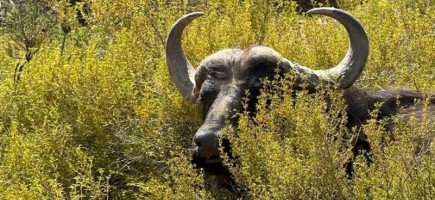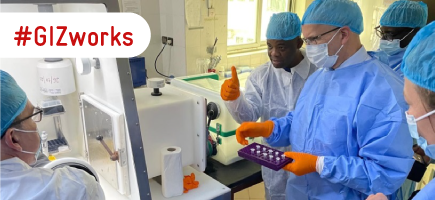Reducing health risks in the wildlife trade
International Alliance against Health Risks in Wildlife Trade
-
Client
German Federal Ministry for Economic Cooperation and Development (BMZ)
-
Country
-
Runtime
2020 to 2024
-
Products and expertise
Climate, environment, management of natural resources

Context
Wild animals are an important part of biodiversity. However, they are also a source of known and unknown pathogens, some of which have the potential to spread to humans. The health risk for humans arises at the interface between wild animals and humans along the entire chain of contact. For successful pandemic prevention, effective measures should be taken to reduce health risks.
Objective
The risk of pathogens jumping from wild animals to humans and thus leading to a pandemic has been reduced. Awareness and knowledge has been developed among the relevant stakeholders.

Approach
The project offers an inclusive and open platform to share knowledge and raise awareness in the context of One Health. It also brings together different disciplines so that they can disseminate their findings and develop innovation solutions, synergies and collaboration. This involves monthly webinars, the website as an interactive space and multiple working groups. Stakeholders from fields such as health sciences, biology, ecology, psychology and social sciences can thus work together in practice to combat health risks in the wildlife trade. The project also supports the development of practical recommendations for the wildlife trade and the implementation of pilot projects.
For example, it funds a project in the Democratic Republic of Congo, in which the risks of zoonotic disease transmission in the bushmeat trade are identified and mapped along the trade chain - from the source to the end markets.
Another project in Indonesia is developing children's books in five different local languages in an interprofessional and multidisciplinary team, based on the values and customs of the respective ethnic group, in order to increase public awareness and knowledge of nature and species conservation.

Last update: December 2023






